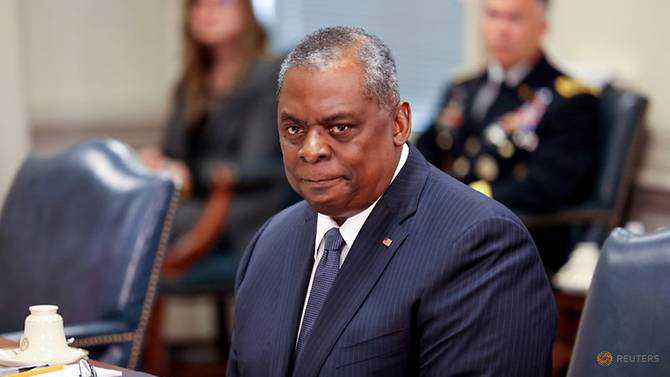Pentagon issues directive in countering China, but offers few details
10 June, 2021

US Security Secretary Lloyd Austin issued an interior directive calling for several initiatives to counter China, US officials said on Wednesday (Jun 9), but handful of specifics were provided about how they would vary from efforts currently underway.
The United States has put countering China in the centre of its nationwide security policy for several years now, with both countries at loggerheads over issues from technology and individual rights to Chinese armed service activities in the disputed South China Sea.
The directive is the result of recommendations created by a Pentagon task force that was set up in February by President Joe Biden.
"This directive from the secretary is finally about getting the department's house in order and making certain it lives up to the stated prioritisation of China," a good senior defence official said, briefing reporters on state of anonymity.
A Pentagon declaration said the initiatives would enhance the military's capability to "revitalise our network of allies and companions, bolster deterrence, and accelerate the creation of fresh operational concepts".
Few certain details were provided about what these initiatives would be.
Last month, the Biden administration's defence budget called for shifting billions in spending from previous systems to greatly help pay to modernise the military to deter China.
More than US$5 billion will be spent on the Pacific Deterrence Initiative, created to counter China and focusing on competition found in the Indo-Pacific with a great try to boost US preparedness in the region through funding radars, satellites and missile devices.
But the budget has arrive under criticism from lawmakers and professionals as not focusing enough on the near-term challenges from China.
"Although the administration is right to try to make substantial investments in exploration and development to guarantee the military’s competitive advantage in another high-end fight, this should not come in the expense of work to strengthen conventional deterrence against China for a while," said Ashley Townshend, who is with the United States Studies Center at the University of Sydney.
Source:
